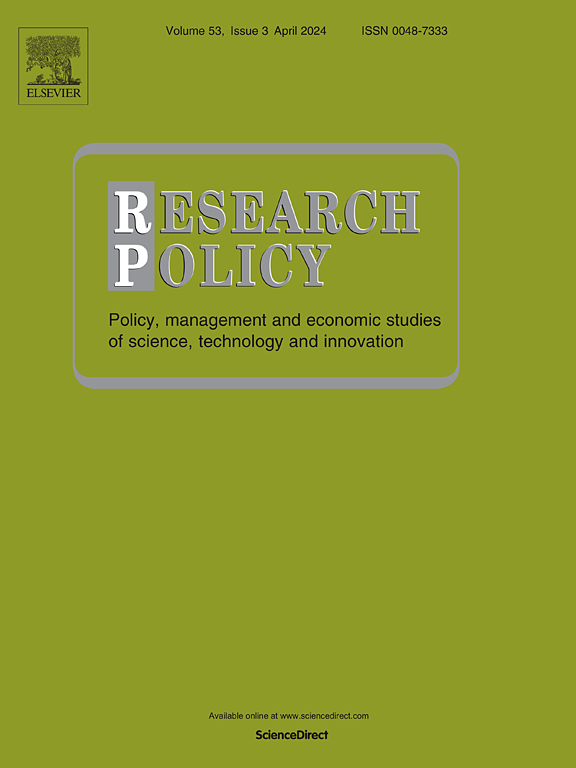The political extremes and innovation: How support for extreme parties shapes overall and green scientific research and technological innovation in Europe
IF 8
1区 管理学
Q1 MANAGEMENT
引用次数: 0
Abstract
This paper explores the relationship between support for extreme political parties and research and innovation across regions in the European Union (EU). Extreme parties often exhibit deep scepticism towards expertise and science, with extreme right-wing parties, in particular, challenging the legitimacy of climate change; an attitude that may weaken green research and innovation. We draw on data from 1137 EU regions —including scientific publication and patent records— and apply Tobit regression models to find that stronger support for extreme parties is associated with lower levels of scientific research and technological innovation, both overall and in their green forms. While this pattern is visible across the political spectrum, important differences emerge. Support for extreme right-wing parties is consistently tied to reduced research output and innovation performance, particularly in green technological sectors. By contrast, the relationship with extreme left-wing support is more variable, depending on the degree of radicalism, and shows no consistent negative connection with green innovation.
政治极端与创新:对极端政党的支持如何影响欧洲整体的绿色科学研究和技术创新
本文探讨了欧盟各地区对极端政党的支持与研究创新之间的关系。极端政党往往对专业知识和科学表现出深深的怀疑,尤其是极右翼政党,他们质疑气候变化的合法性;这种态度可能会削弱绿色研究和创新。我们利用来自1137个欧盟地区的数据——包括科学出版物和专利记录——并应用Tobit回归模型发现,对极端政党的更强支持与整体和绿色形式的较低科学研究和技术创新水平相关。虽然这种模式在整个政治领域都很明显,但也出现了重要的差异。对极右翼政党的支持一直与研究产出和创新表现的减少联系在一起,尤其是在绿色技术领域。相比之下,与极左支持的关系变化较大,取决于激进程度,与绿色创新没有一致的负相关关系。
本文章由计算机程序翻译,如有差异,请以英文原文为准。
求助全文
约1分钟内获得全文
求助全文
来源期刊

Research Policy
MANAGEMENT-
CiteScore
12.80
自引率
6.90%
发文量
182
期刊介绍:
Research Policy (RP) articles explore the interaction between innovation, technology, or research, and economic, social, political, and organizational processes, both empirically and theoretically. All RP papers are expected to provide insights with implications for policy or management.
Research Policy (RP) is a multidisciplinary journal focused on analyzing, understanding, and effectively addressing the challenges posed by innovation, technology, R&D, and science. This includes activities related to knowledge creation, diffusion, acquisition, and exploitation in the form of new or improved products, processes, or services, across economic, policy, management, organizational, and environmental dimensions.
 求助内容:
求助内容: 应助结果提醒方式:
应助结果提醒方式:


